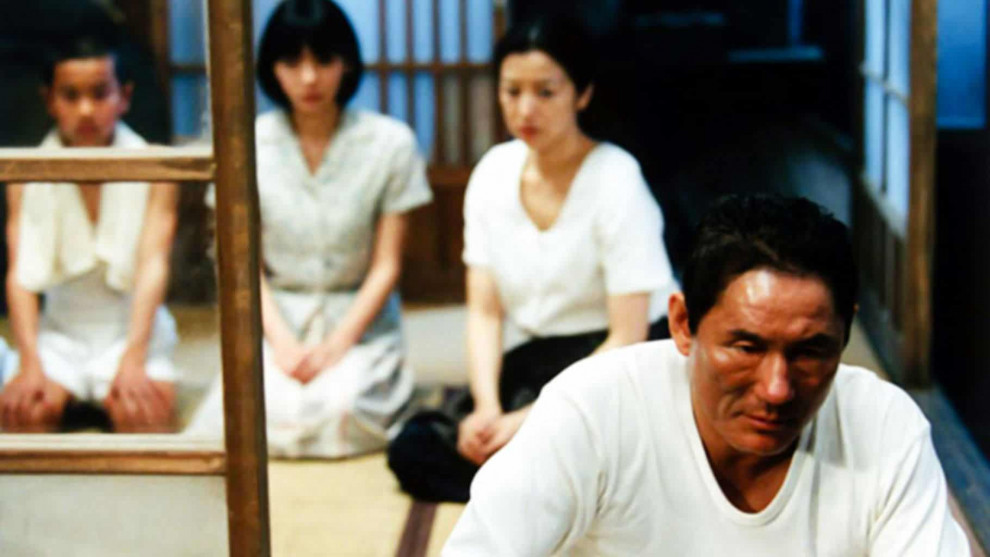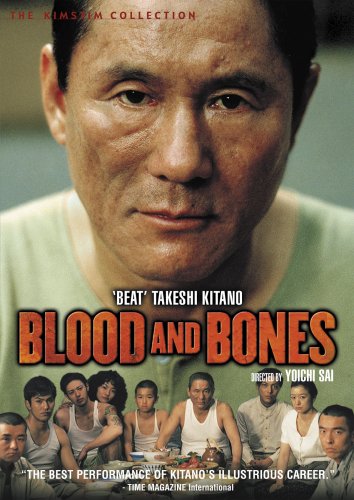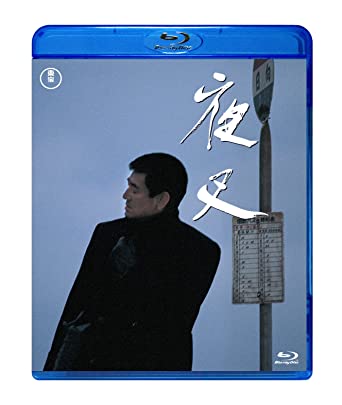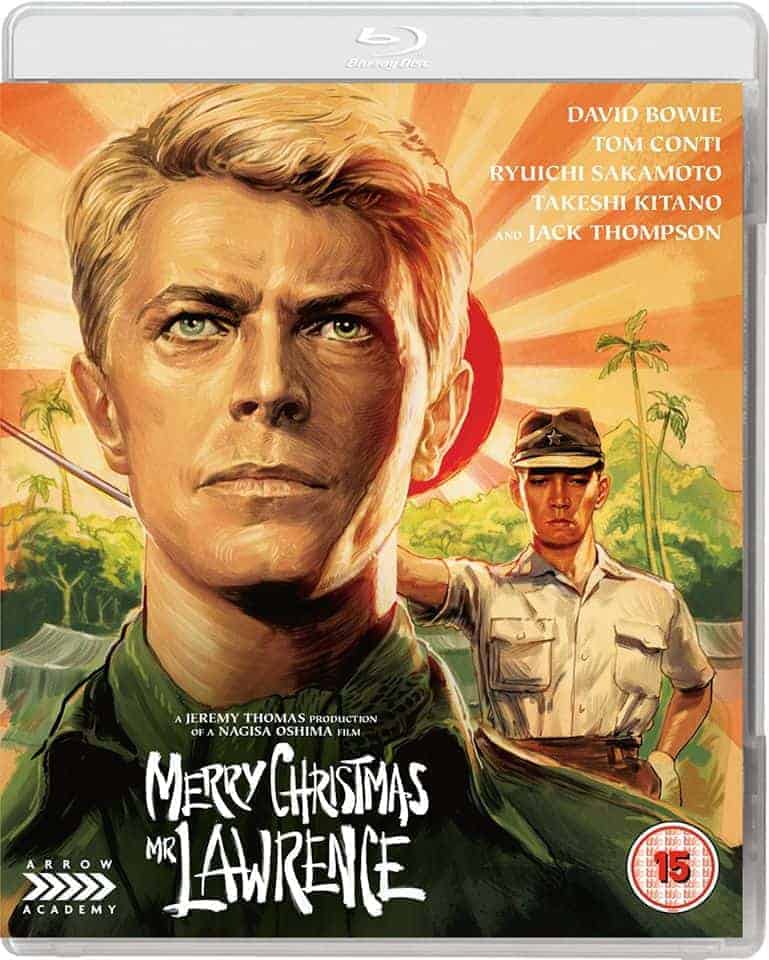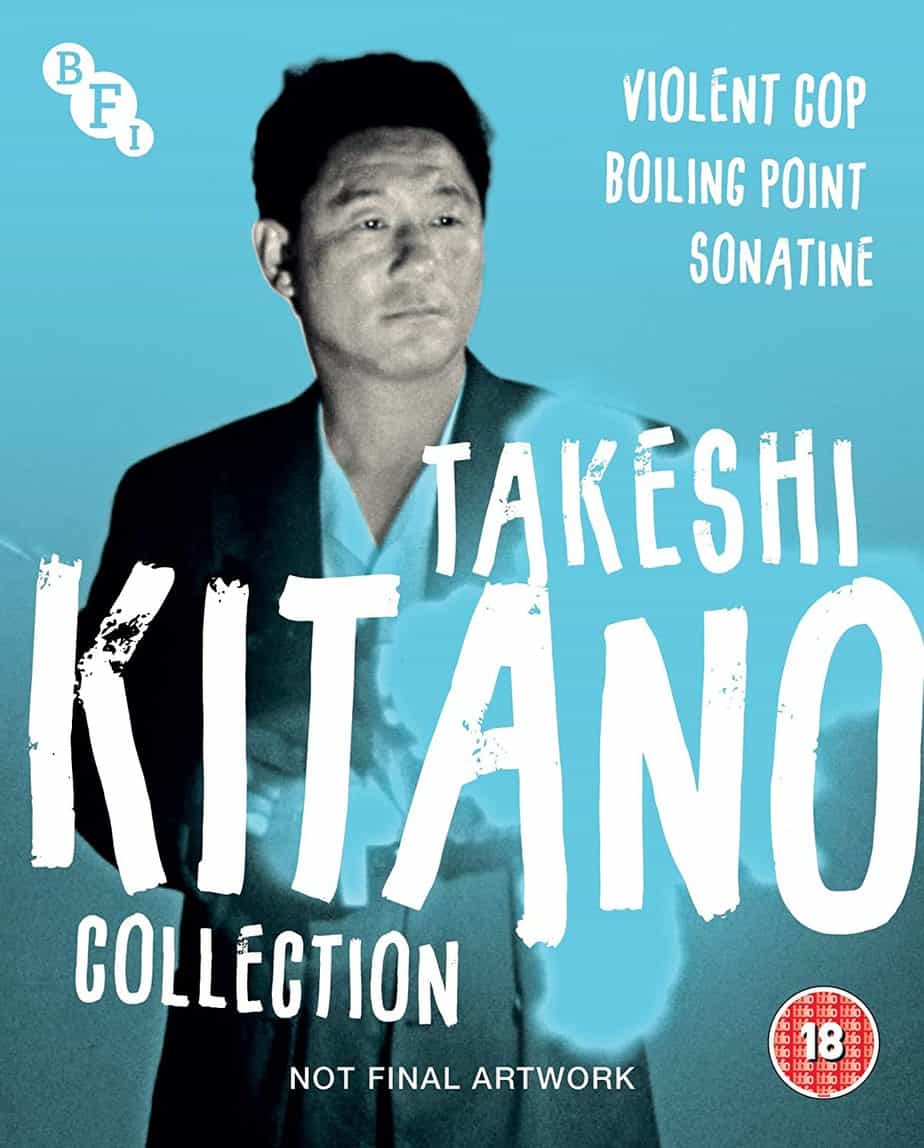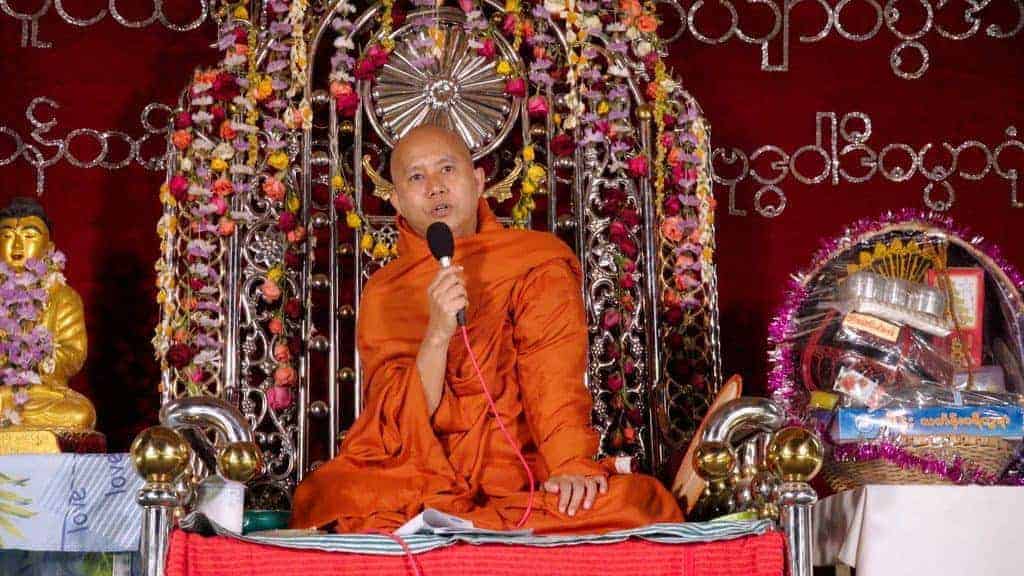Takeshi Kitano is one of the most recognizable contemporary Japanese filmmakers internationally, with films like “Sonatine” and “Hana-bi” having screened in festivals all over the world and netting numerous awards, Venice's Golden Lion included. However, before becoming an director in 1989 with “Violent Cop”, Kitano also had a significant career as an actor (among other capacities) that reaches as far in as 1969, and currently numbers 68 credits to his name. This list is a celebration of his work as an actor. In case you are wondering, no, “Johnny Mnemonic” and “Ghost in the Shell” are not among them, and yes, the order of films is completely random
1. Shunpei in Blood and Bones (Yoichi Sai, 2004)
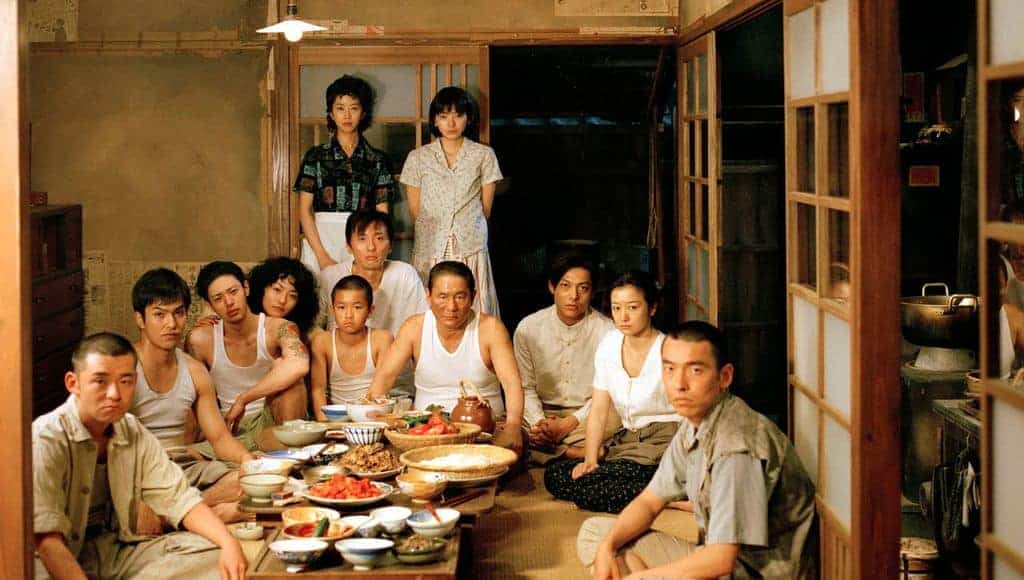
Buy This Title
by clicking on the image below
2. Yajima in Yasha/Demon (Yasuo Furuhata, 1985)
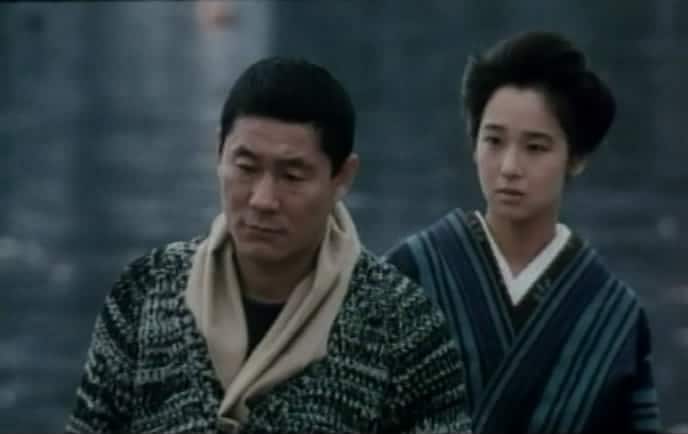
Takeshi Kitano steals the show as Yajima, a character who emits both danger and stupidity from every movement, with his “chuckle”, which eventually became a trademark, being one of the apogees of his performance. (Panos Kotzathanasis)
Buy This Title
3. Sergeant Hara in Merry Christmas, Mr. Lawrence (Nagisa Oshima, 1983)
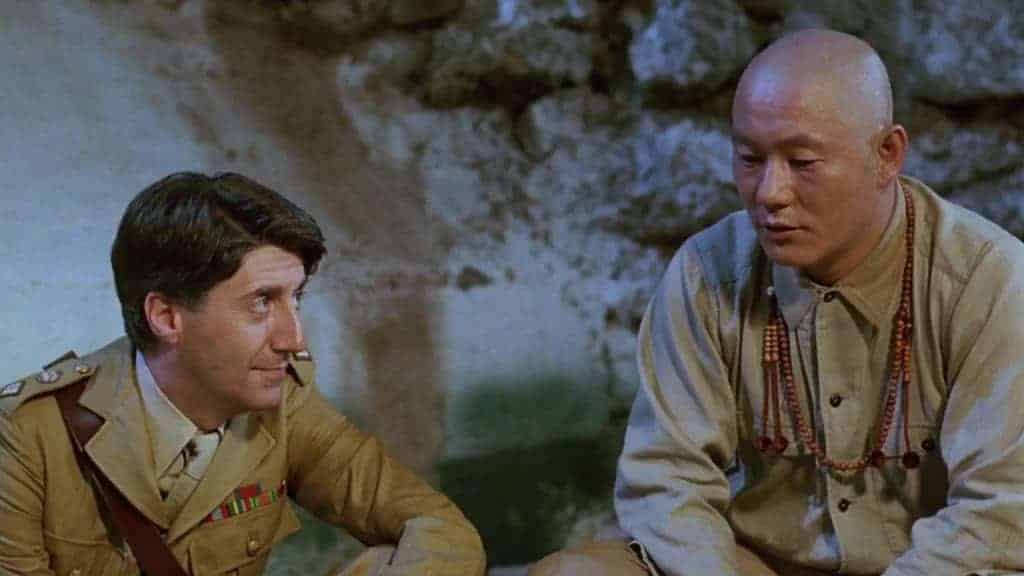
As the Second World War Japanese army sergeant at a prisoner of war camp, Takeshi Kitano shows a versatility and range you would not associate with his trademark stoic cool displayed in much of his more prominent 90s work. Hara is aggressive in following his orders, but also human, comical and endearing in his drunken reverie when at rest. He is not evil, but a man carrying out a role, and is accordingly punished for it. In a film which could easily be remembered for its East versus West meeting of musicians David Bowie and Ryuichi Sakamoto, Nagisa Oshima gives “Takeshi” the last laugh, or indeed smile, in delivering the film's title. (Andrew Thayne)
Buy This Title
4. Detective Azuma in Violent Cop (Takeshi Kitano, 1989)
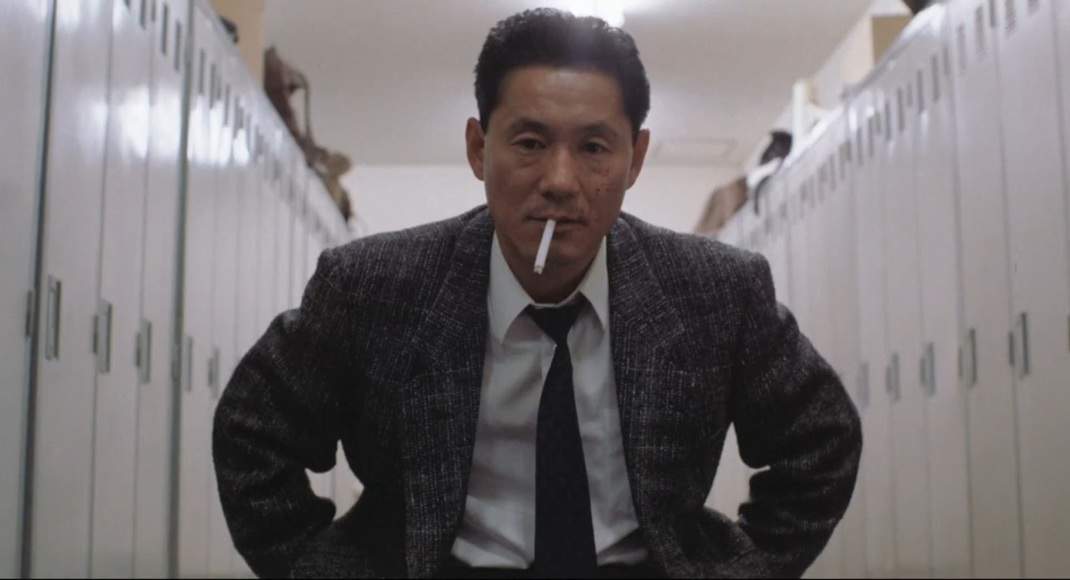
According to Kitano's own account he was asked by the producers of “Violent Cop” whether he wanted to take over directing duties from Kinji Fukasaku, who had to leave the project due to scheduling conflicts. “Sure. How hard can it be?” was the reply of Kitano before he eventually embarked on the journey of directing his first feature. Even though the story seems a bit far-fetched, especially when told by Kitano himself, it was certainly the time for him to direct because as soon as he walks towards the screen, with Daisake Kume's moody, at times even jazzy music playing in the background, the viewer becomes a part of the world of Dirty Harry-stand-in Detective Azuma, a man who not only fulfills what the title promises, but also a man unpredictable, a force to be reckoned with and who can attack from out of nowhere. While not the actor's best role, which is perhaps due to the fact Kitano did not have complete creative control over the project, his performance as Azuma still showcases the actor's remarkable quality of doing very little to great effect, his charisma and his uncanny presence. (Rouven Linnarz)
Buy This Title
5. Murakawa in Sonatine (Takeshi Kitano, 1993)
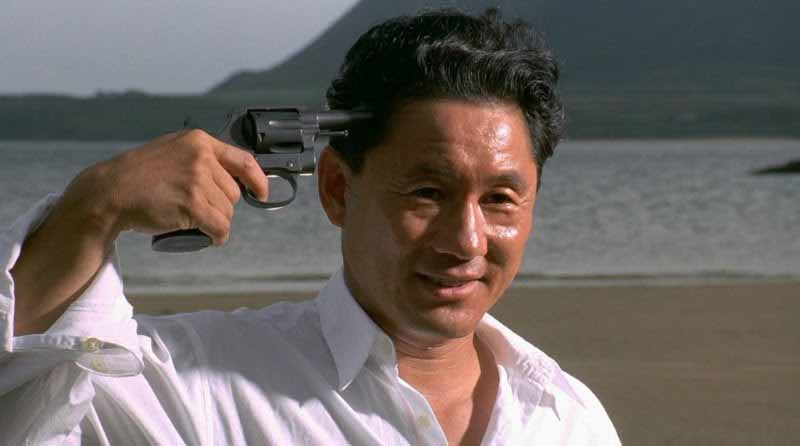
Besides “Hana-Bi” Takeshi Kitano's “Sonatine” is perhaps the work he is best known for with the image of him, as Murakawa, a yakuza thug who has been used as a pawn by his superiors and is now on their hit-list, holding a gun to his head probably the most common picture associated with the director's whole body of work. However, his performance as Murakawa encapsulates not only the movie's tone, inherent in every aspect, but also the concept of weariness and the longing towards death. Essentially, all the humorist scenes, the childish games on the beach to pass the time, or even the short romance with a girl he rescues from her rapist boyfriend are only stages towards what is inevitable. As soon as Murakawa sees the beach, the ocean – a metaphor for the world hereafter in many films by Kitano – he, as well as the audience, knows this is the final stage, adding a bittersweet tone to the actor's performance. (Rouven Linnarz)
Buy This Title
6. Uehara in Boiling Point (Takeshi Kitano, 1990)

In comparison to his roles in “Violent Cop” or “Sonatine”, Uehara is a relatively small part for Takeshi Kitano, a yakuza thug who we meet in the second half of the story, as the main character, played by Masahiko Ono, travels to Okinawa in order to buy a gun to defend himself against a local gang. Uehara is essentially a bully, a sexually devious prankster who has no problem with exploiting his most trusted ally (the only one that is left) and making rather coarse sexual advances towards the taciturn Kazuo (played by Minoru Iizuka). Similar to his later performance in “Getting Any?” Uehara is essentially a deconstruction of both, masculinity, especially within the yakuza-genre, but also the audience's expectations when seeing Kitano, who was back then still mainly seen through the lens of his many TV appearances and as a comedian. Uehara is the deconstruction of what has made Kitano famous and the introduction of Takeshi Kitano, the artist, actor and director willing to let go of the character ‘Beat' Takeshi, a part he has played for such a long time. (Rouven Linnarz)


